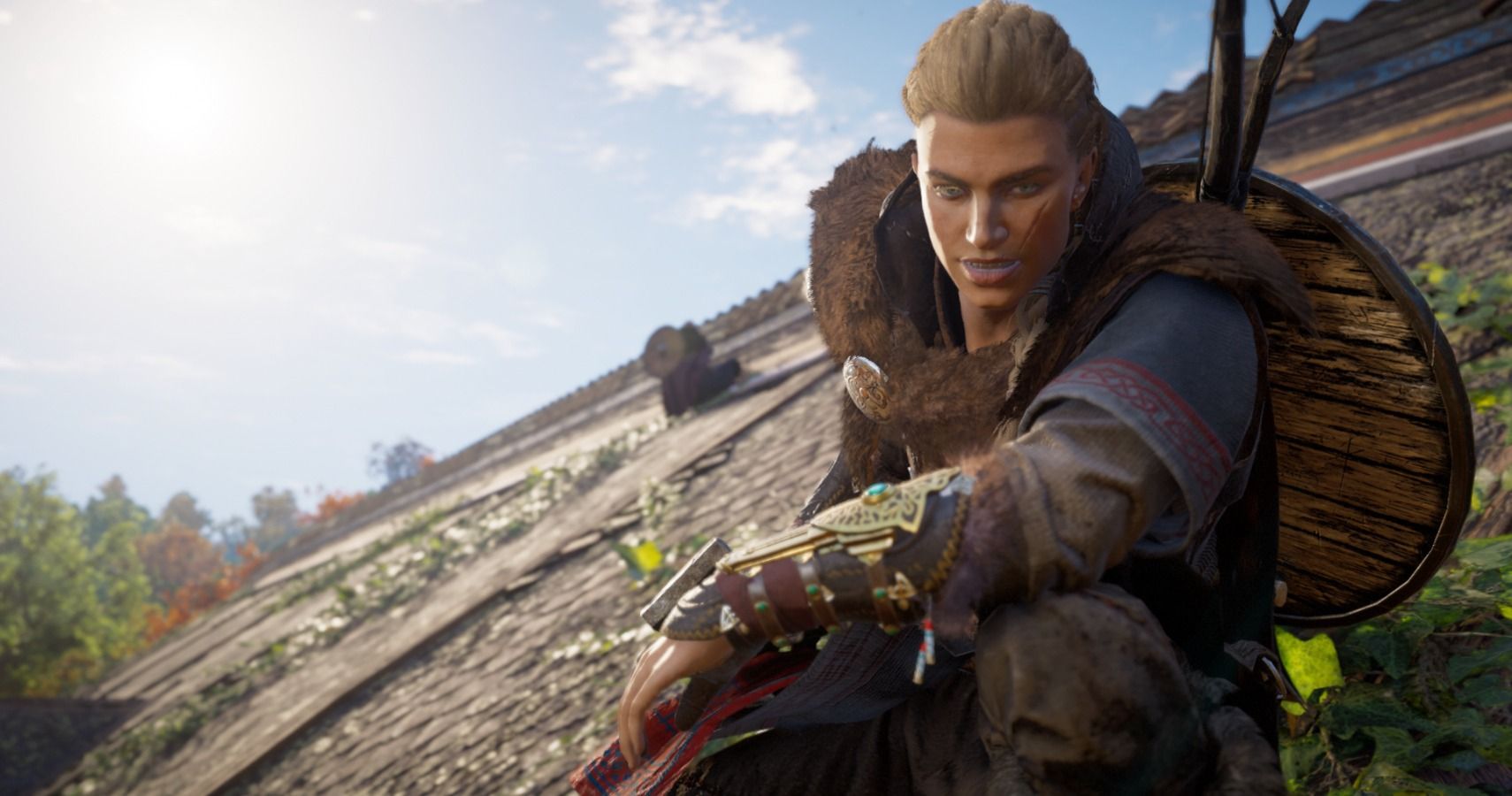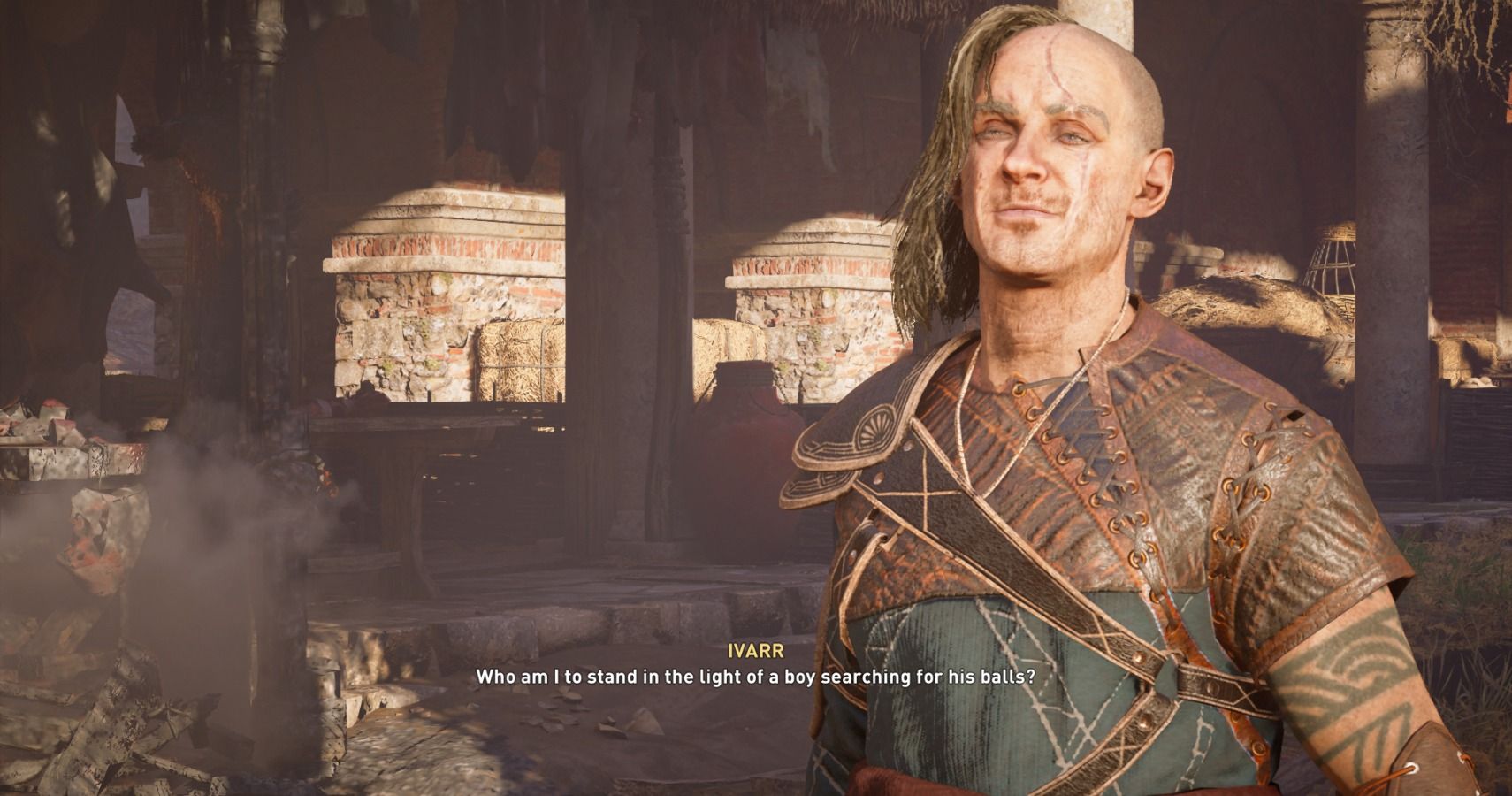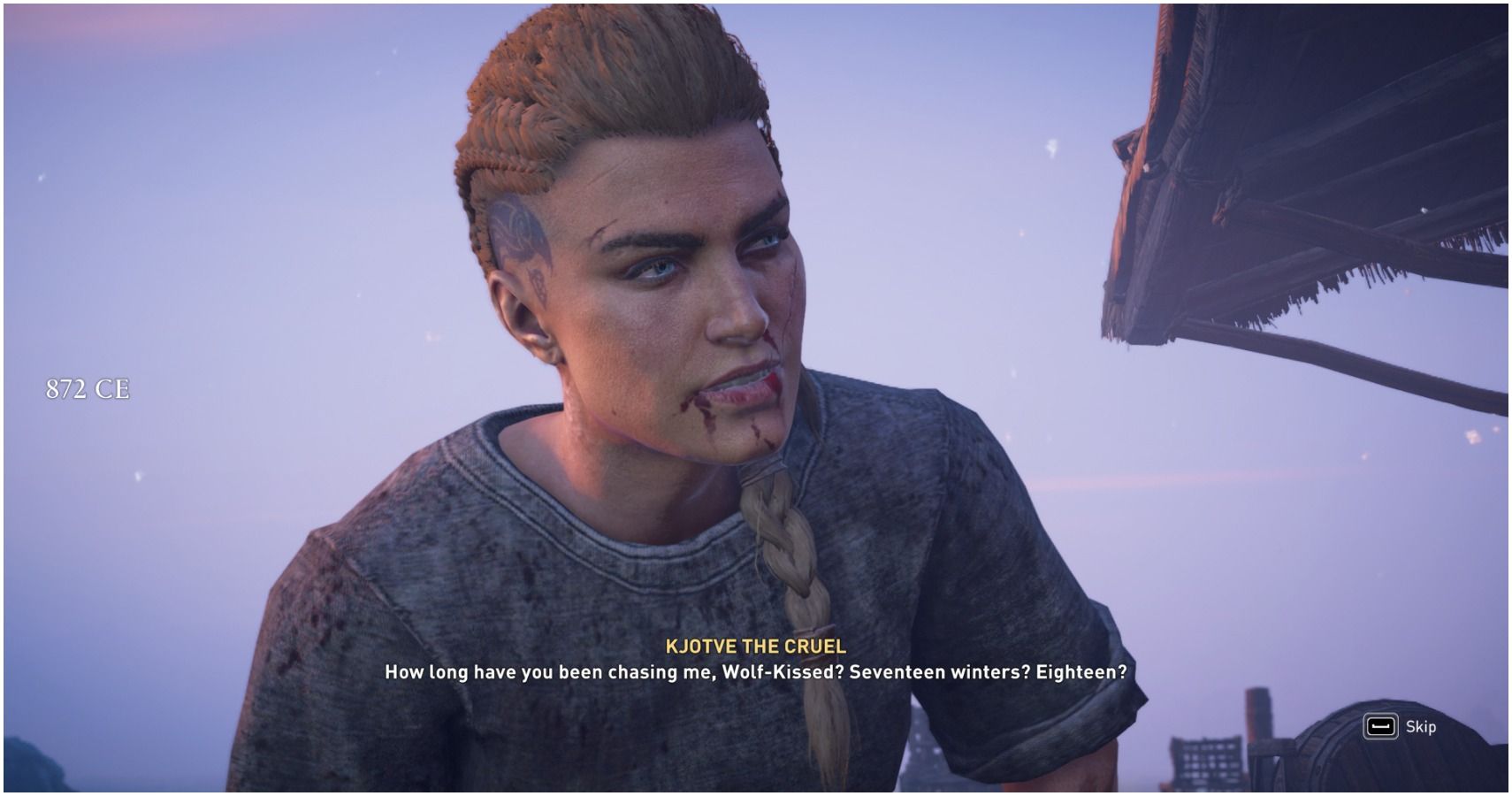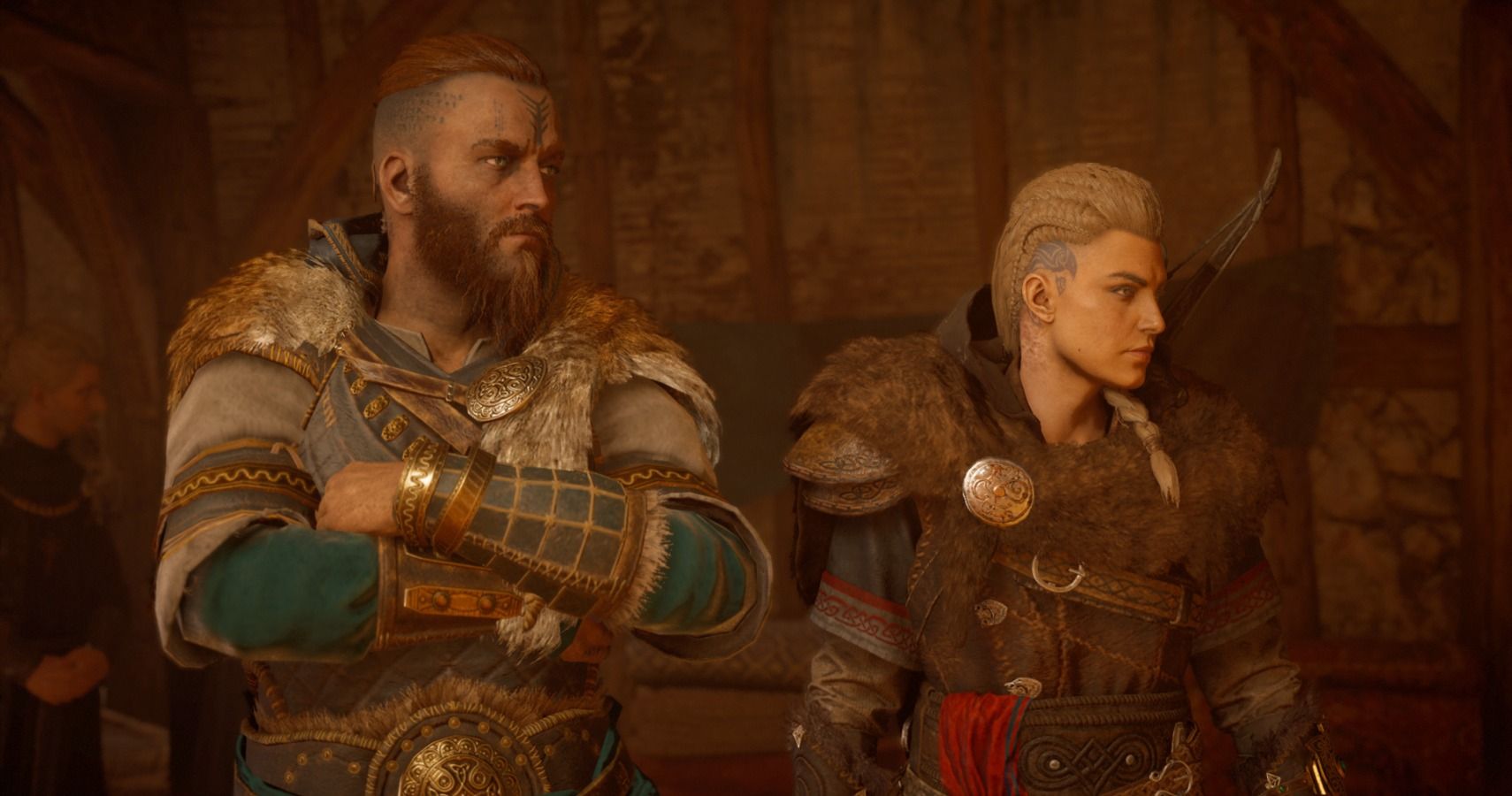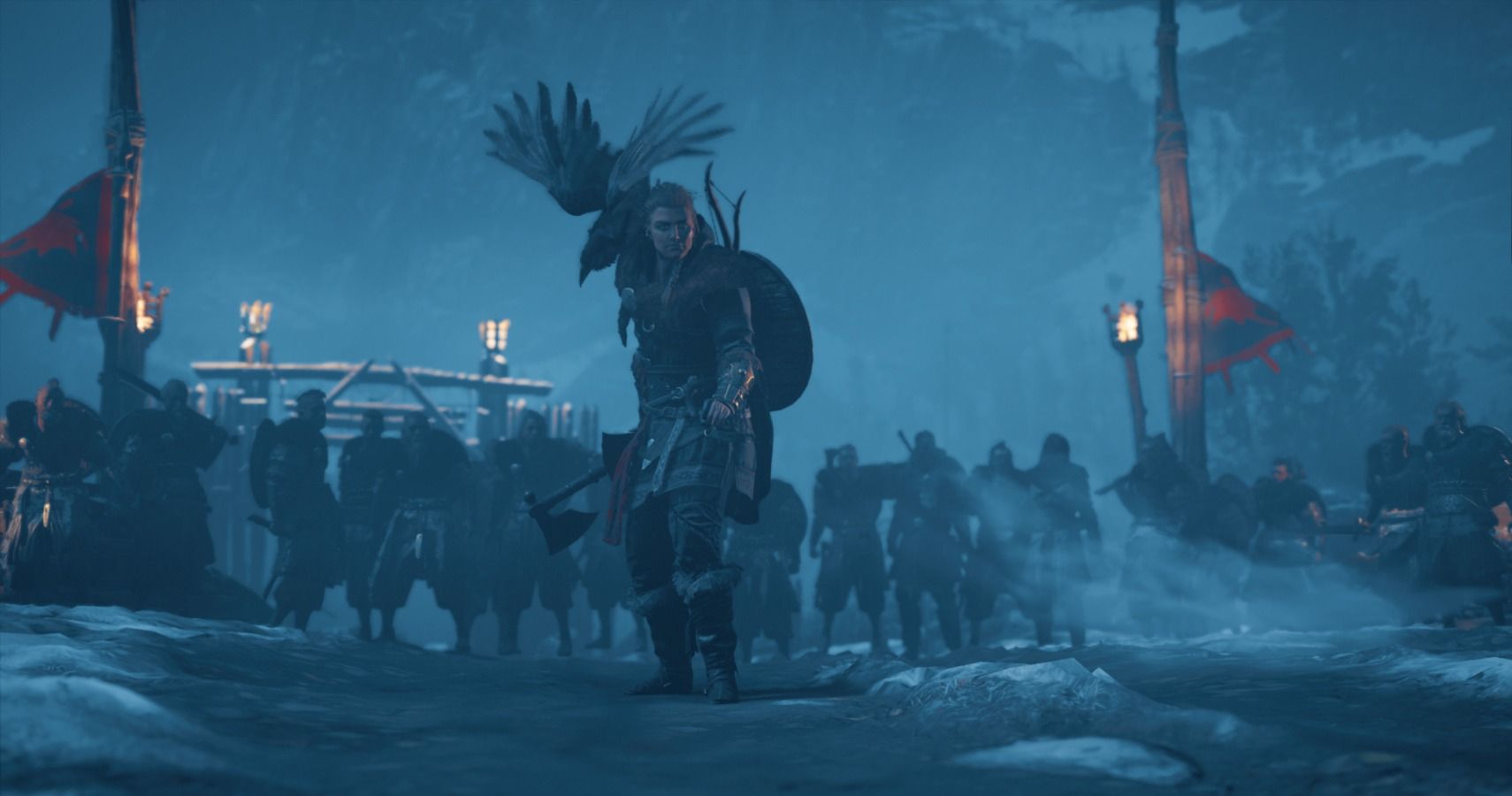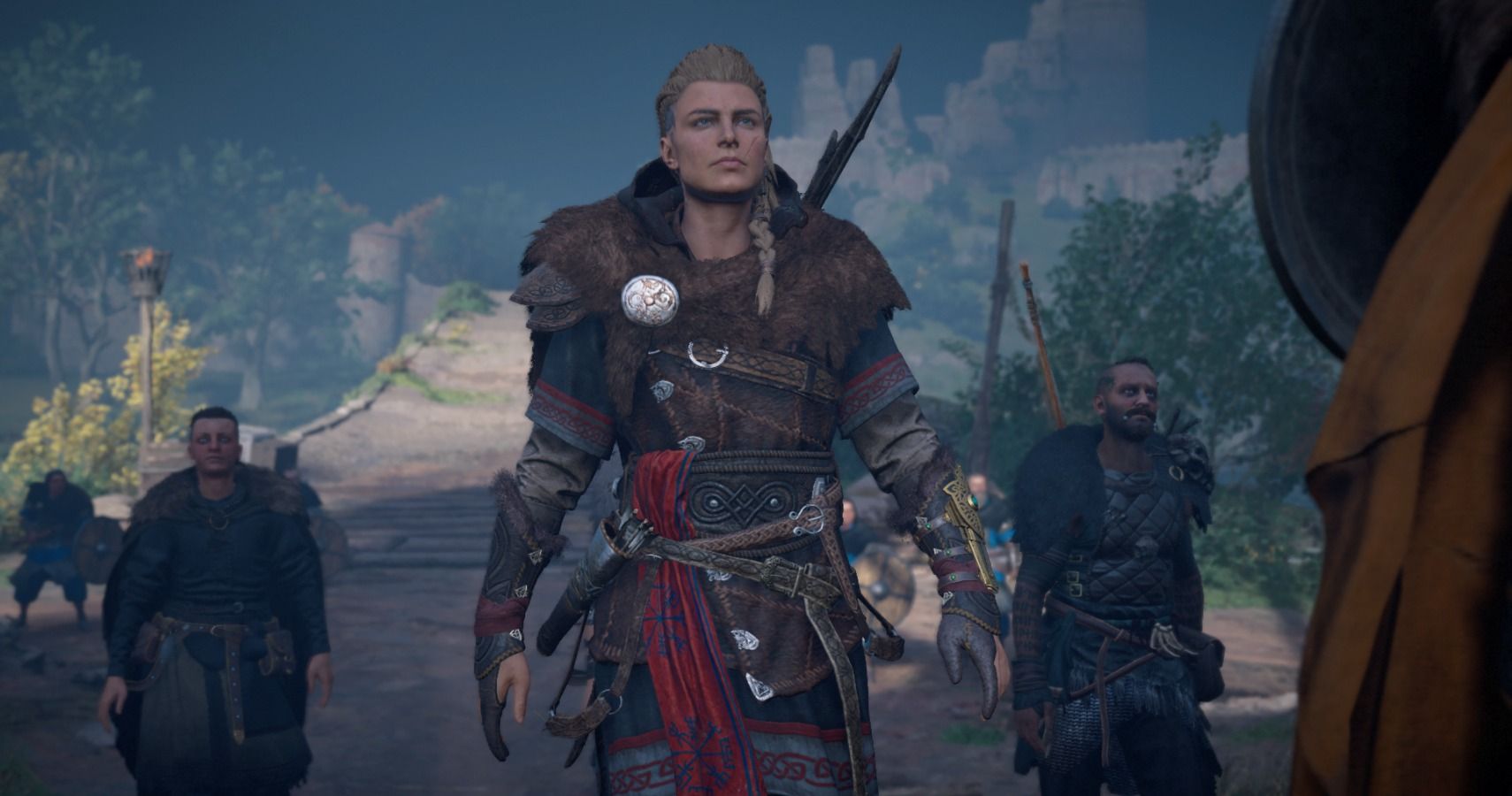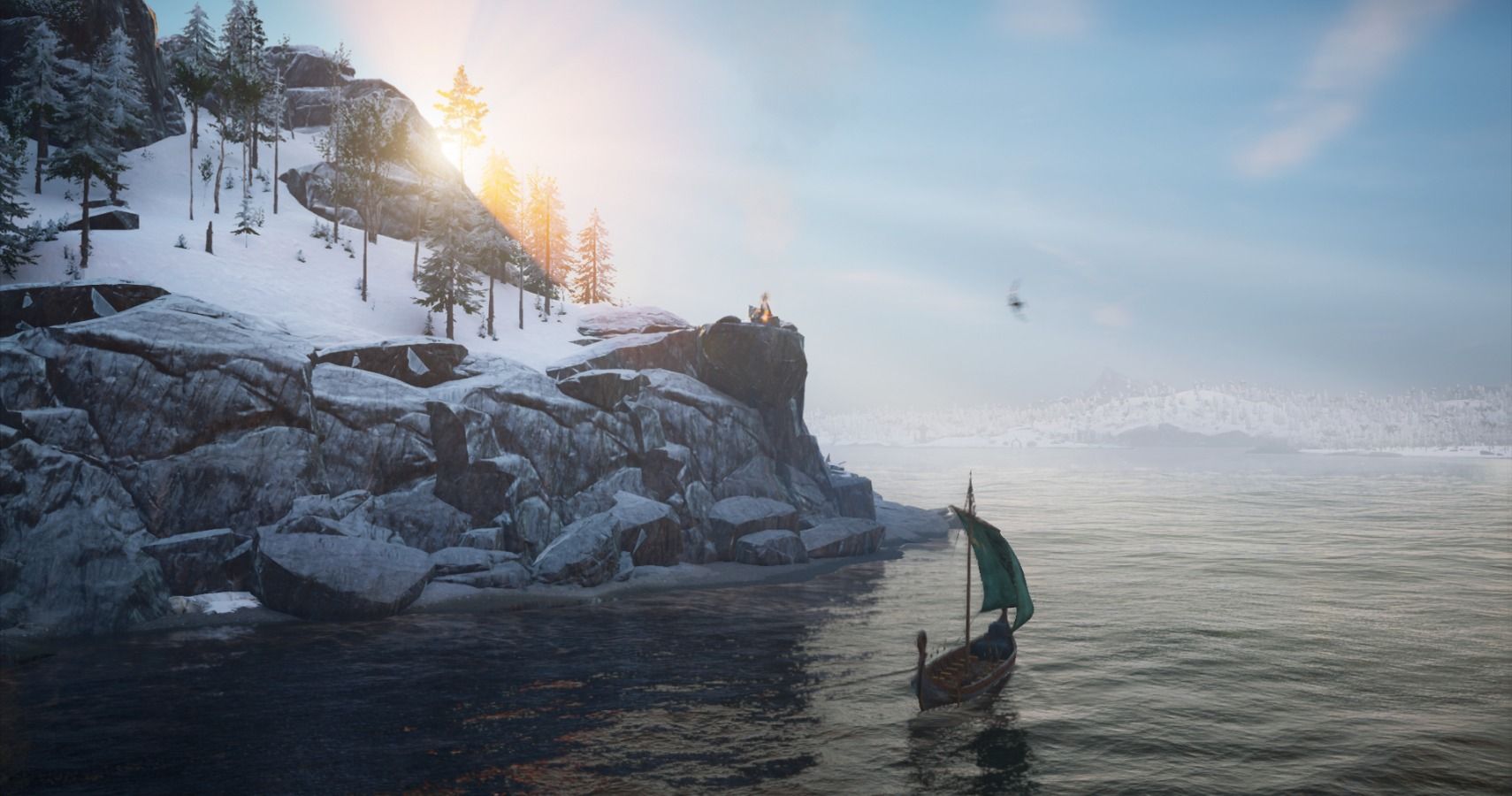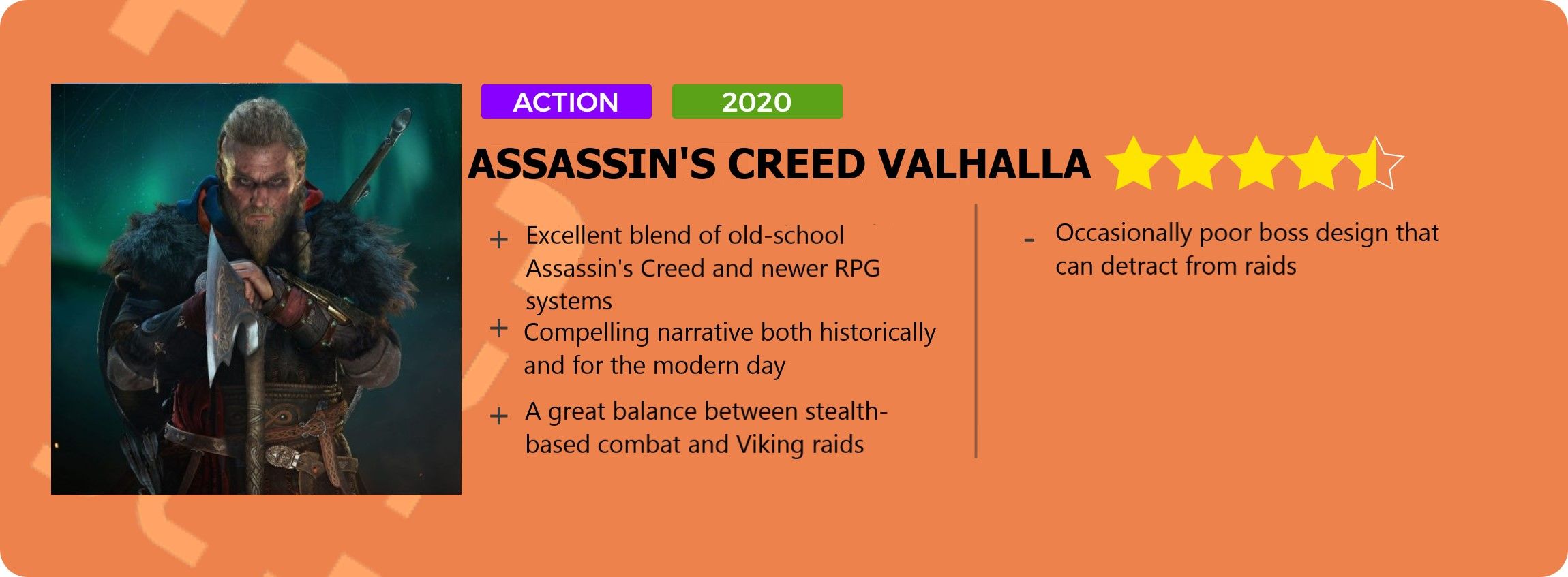Queen Aethelswith may be less cowardly than her craven husband, but I reckon her bladder’s only about ten seconds away from betraying her. I try to be soft with her, empathetic even. I understand where your hatred comes from, I say, but we are not here for war — we only desire peace. Her gaze shifts wayward as the encroaching crunch of stomping boots gets louder. Three severed heads roll past my feet and land at hers — I have my way of handling delicate situations, and Ivarr Ragnarsson has his.
I’ve always been fascinated by Norse history and mythology, so I have been invested in Valhalla’s nature as a berserker sim ever since its first warhorn sounded. It’s important to note that this largely relies on the plain and simple fact that Vikings were not quite as heroic as a substantial amount of contemporary historical fantasy likes to think. Fortunately, Valhalla recognizes this, to the extent that even its most likeable characters are usually complete bastards.
On the other hand, calling Valhalla a Viking sim seems at least partially redundant, if not wholly derivative. This is, after all, an Assassin’s Creed game first and foremost — Valhalla is just the subtitle. Fortunately, Valhalla recognizes this, to the extent that I can confidently and honestly say it’s the strongest entry in the series to date.
Set shortly after the original Danish occupation of England, Valhalla transpires as the fabled sons of Ragnar attempt to bring Britain to its knees. When you first land in Mercia after a long and arduous voyage from Norway, you quickly learn that Ubba and Ivarr Ragnarsson have already all but conquered one of England’s four kingdoms, and are dead set on breaking the rest. To accomplish this, you’ll need alliances, although naturally the Saxons are not particularly keen on parlaying with the invaders who have burned their villages and massacred their kings. And so, Valhalla tasks you with traversing the war-torn shires of England, rolling heads in exchange for pledges to your questionable cause. The most intriguing facet of this is the juxtaposition of war and peace that is so naturally inherent to Valhalla as a whole, which is something worth extrapolating in more detail.
Put it this way: when you play as Eivor, leader of the Raven clan, you can pet the dog. You can approach a group of chuckling children and play drengr with them, although this is far less wholesome than you’d think. For example, you can do a pretend raid with a little girl who reckons you’re Odin’s gift, and her innocence and enthusiasm is infectious. Right before you leave, she celebrates her make-believe victory by yelling, “Death to the Raven clan!”
“Kjotve’s young raiders...” Eivor mutters to themself. “I’ll see you wolves on another battlefield one day.”
It’s harrowing, really, that hatred and violence are so inextricably ingrained in each and every character. And yet outside of preexisting tribalistic conflicts, these people are loyal, warm, affectionate, and lively. The strength of the character writing lies in the fact that your companions are immensely likeable at all times except for when they are not, which sounds like a statement that could apply to lots of games, but not quite in this way. No matter how warm a scene might be, everyone in Valhalla, including you, is capable of intense cruelty. Every time you act as somebody’s hero, you become another person’s self-proclaimed angel of death. The important detail here is that even Valhalla’s most irrelevant inhabitants realize and communicate the consequences of this — something that most depictions of Dane/Saxon warmongering shy away from. A Saxon NPC will call you a filthy Dane, despite the fact you’re Norse and have just saved their family from an untimely demise at the hands of one of their own. Meanwhile a Dane NPC will seek to rip you limb from limb, even though most other takes on this era would gravitate towards placing you side by side just because you’re from vaguely the same part of the world. Valhalla pits people against people far more than it does Dane against Saxon.
This is what makes Valhalla interesting to me. It’s not the same kind of Viking glorification piece we’ve come to expect in modern media, but it’s not some overly didactic morality shite either. It’s a true-to-life take on an era that is almost as bloody as it is interesting — and it is very interesting. Eivor is humanized in cutscenes — we see them laugh, drink, flirt, fight, and quip with a tongue more wicked than Jormungandr’s bite. But that warmth quickly dissipates and ten seconds later you're blowing into a warhorn to swing berserker axes around a monastery — and for what? Raw materials and iron ingots to expand our tattoo shop? Silver to wager on a drinking contest?
It’s not necessary to belabour this point any further, but it is important to say that Valhalla is always clever about both what it makes you see and what it makes you do. I was sceptical this would be yet another story where Vikings are perfectly loveable heroes who drink ale and sail off into the sunset. They do drink ale, and there are many sunsets to watch on the game’s gorgeous horizon. And they’re loveable, too, in some ways. But these characters are far from perfect, and the best writing is usually found in Valhalla’s most damning scenes: the betrayals; the deaths; the tragedies; the heartbreaks; the many, many losses that are suffered on every side of this omnidirectional war to become king or queen of everything and nothing.
This is just part of Valhalla’s formula, though. Ultimately this is an Assassin’s Creed game, and as I stated earlier, it’s an exceptional one. The modern day narrative is not overbearing in Valhalla — on the contrary, it is tastefully repressed to allow you to become fully invested in Eivor. It also actually matters this time around, to the extent that by the end of the game, you’ll be fully convinced that Assassin’s Creed is finally, after all these years, back on track. Social stealth is back in action — you often have to make your way through “distrust areas” where you don a shady hood, walk at a snail’s pace, blend in by pretending to cook, or using an idle grindstone. Fail to look the part and the guards will want a word. You’re usually on your own in these situations, and Valhalla is a game where large-scale combat is designed with raiding in mind, so it’s always in your best interest to eschew your berserker boots for an inconspicuous cloak, whether or not that flies in the face of your Vikingr pride.
It’s also worth noting that the hidden blade is actually useful and prominent in Valhalla. For all-out assaults, I usually went in axes swinging, but for assassination attempts — which there are a lot of — I’d instead opt for scaling the outer wall and skulking through the camp as an imperceptible ghost. You’ve also got your trusty raven bud, Synis, who you can sort of warg into to scout the surrounding area. This allows you to draw up infiltration routes and pinpoint areas that give you a clear shot at some poor guard’s noggin. It’s engrossingly strategic, to the extent that even though Eivor wears their blade on the outside of their forearm — why would a Viking conceal their fancy weapon? — they are no less deserving of it than Altair or Ezio.
This brings us to what I reckon is Valhalla’s greatest strength. Although it revels in the Assassin’s Creed basis that was largely absent from Origins and Odyssey, it uses their experiments in RPG systems as flavour text. It takes an Assassin’s Creed core and buries it deep in a complex web of skill trees, dialogue choices, and side activities — but it’s buried treasure that you dig up from time to time. From nefarious ancient orders to old ladies eating too many snake eggs and letting a rank fart rip, to the sick rhymes you bust in the midst of a heated Viking rap battle, Valhalla’s world oozes personality like those sweets you get in America with too much sticky syrup inside. Assassin’s Creed is its heart, but role-playing systems are the arteries keeping its delicate synthesis in healthy circulation. Altogether, it’s a spectacularly cohesive genre-bender where you can be faceless and traceless in the streets of Lunden, but, if you want, can then turn around and clobber some soldiery twat’s helmeted mug with dual shields.
On that note, combat in Valhalla is exceptionally clever, but not in any conventional way. Although its skill tree is as sprawling as Yggdrasil itself, teeming with abilities that allow you to pilot arrows and conjure poison fog, Valhalla is not very mechanically complex. This is a good thing — dual-wielding axes in the thick of a Viking raid is not something one does with the finesse of a fencer, and is instead more aligned with brutal swings and intractable throws. Its cadence has about as much subtlety as a chromatic Gregorian chant.
The special thing about Valhalla’s combat is its atmosphere — it’s not just you against an army. You blow your warhorn to rally your crew and what follows is a medieval bloodbath with too many elbows. Axes flash as steel sings above steel, while arrows whizz through the blood-stenched air to send their marks to their makers. It feels like a battle as opposed to a game level, which is reflected in the mission design for major assaults, where you dismantle the clamps keeping drawbridges suspended, raise a portcullis and break its wheel to fix it in place, and annihilate stalwart gates with monstrous Viking battering rams. I’d also like to add that you can send ships laced with oil to explode in the face of a supposedly impenetrable fortress, before piling into the sweltering blaze from the river as part of a bonafide Viking horde. It’s brutal, blustery, and brilliant.
The only real low point of combat for me is that I wish some of the boss design was better. There’s one boss about midway through the game who wields a large polearm, which means their range is pretty wild. Pair this with the fact that they have access to five-part combos — in which the first hit can stunlock you — a healing ability, and an entire army around them, and you’ve got a fight that’s more invested in stacking the odds in the boss’ favour than giving them a gimmick you can exploit with skill. It seems more like a case of ramping the sliders up than designing a boss with nuance — after several deaths I was disappointed to learn that I couldn’t even turn the difficulty down here, and ended up stuck for quite some time.
It’s still worth it, though. No matter how irritated I got, I was always quickly reminded of why I’d been enraptured with this world from the get-go. Its stunning vistas make exploration a joy, even if that just means sticking your longboat on autopilot and listening to Dag ramble on about how loads of warmaidens thought he was a god, before Bragi butts in and goes, “why didn’t you stay with them then?” I could honestly wander around Valhalla’s England for hours on end, aimlessly meandering through the boroughs of Lunden, or climbing on top of ancient ruins to get a bird’s-eye view of the greenery below. Most of these areas are narratively significant, too, meaning that Valhalla’s pacing is always justified. No two stories are the same in any way except for the fact that they’re pretty much guaranteed to bring you somewhere genuinely beautiful. And even though the story is regimented in that each area has its own individual arc, you don’t really notice its methodical progression because you’re usually just invested in the now. The narrative itself is immensely satisfying, to the point I’d say it’s the most cohesive, fascinating, and inventive story the series has ever seen — by a long shot.
Assassin’s Creed Valhalla was a risk. Not really because it took Vikings as its subject matter — people love Vikings, to the extent that loads of folks are a bit sick of Norse stuff at this point. It was a risk because it compounded the ideals of Assassin’s Creed’s origins and Assassin’s Creed Origins. Fortunately, it turns out that the best game in this series is the one that’s drawn from pretty much everything that came before it, in order to carve out its own unique identity based on the absolute best bits of its many, many predecessors.
Version tested: PC. A review copy was provided by Ubisoft.

